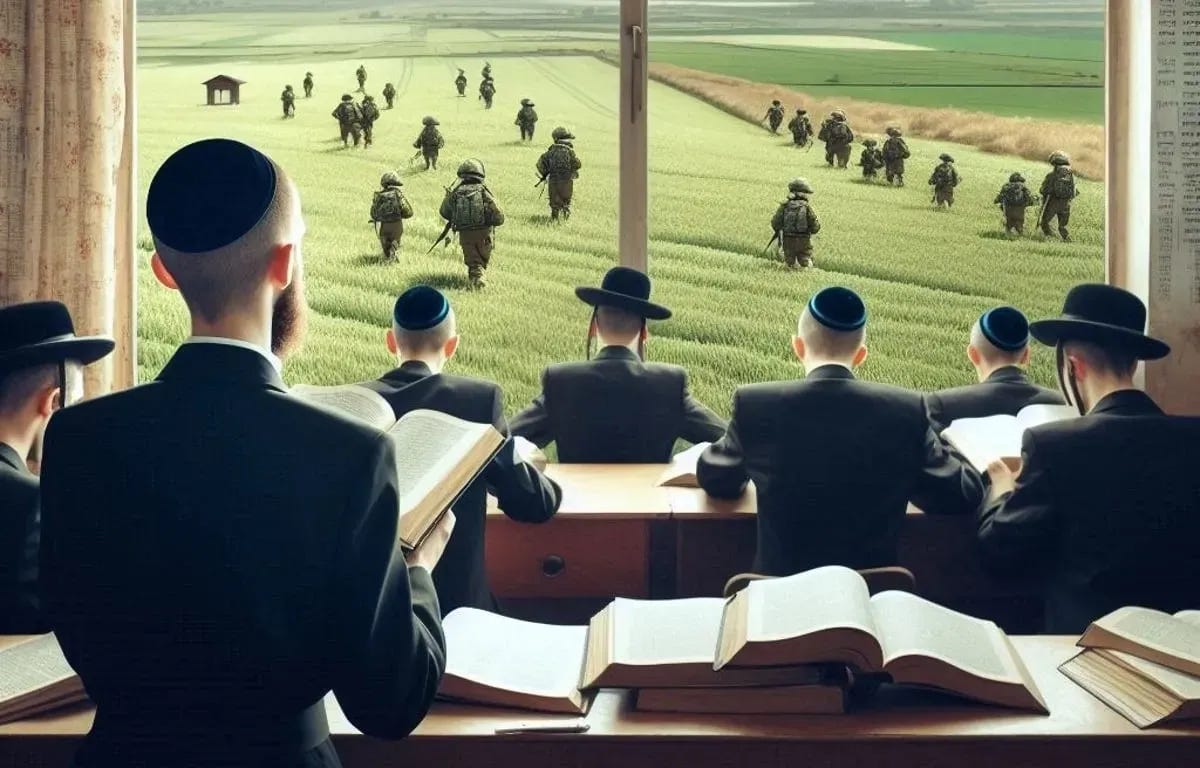Yeshivos: Blight or Blessing?
Do they harm society or do they help it?
As we approach Chag Matan Torah, let’s consider whether the institutions professionally dedicated to Torah - yeshivos - are a blight on society or a blessing.
I spent many years in yeshiva. At the time I was, of course, convinced that I was in the greatest environment in the world, doing the best possible thing. Completely isolated from wider society, I was dedicated to doing nothing other than learn Torah every day until late at night, including Fridays and Motzai Shabbos. And the yeshiva made it clear that this was the only real goal in life. Chessed is for girls, jobs are for those who failed in life’s ultimate purpose, higher education is for goyim.
Thirty years later, it’s clear to me that yeshivos such as the ones I attended are a blight on society. Israel is in a long and very challenging war. A frighteningly large number of Dati-Leumi families are breaking down because the husbands (in their thirties and forties!) have been away from their jobs and families and undergoing traumatic experiences in reserve duty for endless months. But most of the hundreds of thousands of men who learn and learned in yeshivos don’t even care! Instead of being nosei b’ol chaverom, helping alleviate their brethren’s terrible burden, they are trying to extract as much money as possible from them in taxes. And for all the supposed wisdom that Torah produces, the rabbinic leaders don’t have any plan to address how their freeloading lifestyle is not only unsustainable for them but is an existential threat to the country.
Why on earth would we celebrate the giving of the Torah, if this is what it produces?
The first part of the answer is that there are yeshivos and there are yeshivos. Or, more precisely, there are yeshivos and there are yeshivot. In the Dati-Leumi community, yeshivot are truly institutions of which to be proud.
My son’s yeshiva, Maalot Yaakov, is extraordinary. He, along with the rest of the 36 soldiers in his Givati unit who are all part of the Maalot hesder program, just went back for a day to join the yeshiva in making a siyum on kol haTorah kulah. The yeshivah doesn’t just study Torah; it teaches Torah to communities around the north of Israel, it produces dedicated soldiers, it runs several crucial programs with the highly disadvantaged Bnei Menashe community to help them spiritually, psychologically and financially.
And last night, I attended a dinner for an extraordinary yeshivah for Americans, where I taught for ten years before opening the Biblical Museum of Natural History: Lev HaTorah in Ramat Beit Shemesh. Aside from running an outstanding program for Americans spending a year in Israel, teaching them to help society as well as learn Torah, they have produced an incredible 350 students who have served in the IDF. And they recently created Israel’s first hesder program for Americans, along with building a center for lone American soldiers, Lev LeChayal (for which they just launched a matched fundraising campaign).
Hesder yeshivot produce outstanding citizens. They strengthen spirituality, they strengthen the economy, they build large productive families, they sacrifice themselves for the nation to a higher degree than any other sector. Everyone’s motto should be “the only yeshivos I support are hesder yeshivot.”
But this still leaves us with a question. How can Torah produce such radically different types of institutions, one morally broken which weakens society so badly, and one so outstanding that it strengthens society in every way? I think that the answer is as follows.
Keep reading with a 7-day free trial
Subscribe to Rationalist Judaism to keep reading this post and get 7 days of free access to the full post archives.




